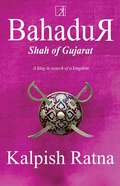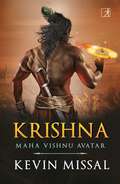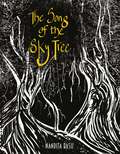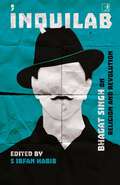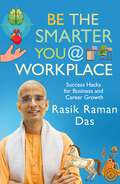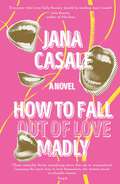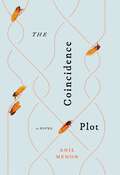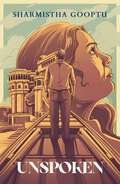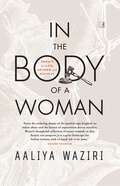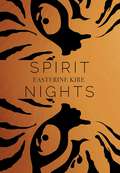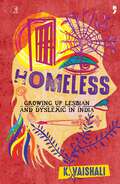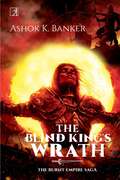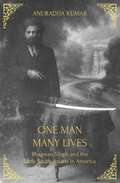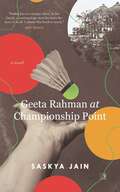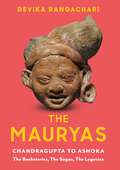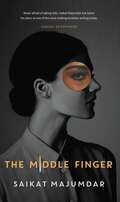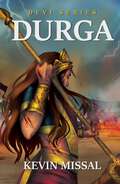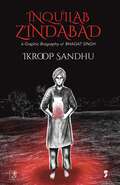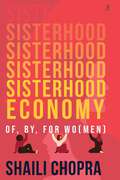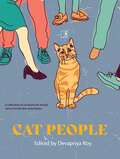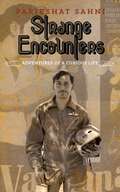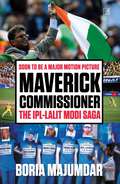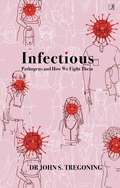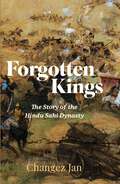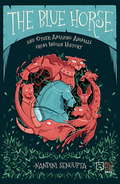- Table View
- List View
Bahadur Shah of Gujarat: A King in Search of a Kingdom
by Kalpish RatnaTime has forgotten Bahadur Khan. History has condemned him as a drunken wastrel and overlooked his military genius. Part man, part horse; part Hindu, part Muslim; part Rajput, part Gujarati; what was he like, really, this rebellious young man? A warrior born, why did he refuse the most vital battle in history? Why did he surrender the islands of Bombay to two centuries of Portuguese rule? This is the story of that renegade prince, Bahadur, Shah of Gujarat. When Vasco da Gama lands near Kozhikode on 20 May 1498, he seems scant more than a visiting trader, just another discourteous barbarian, hardly a threat. But the aughts of the new century bring seismic change. Portuguese violence on the coast escalates and piracy menaces the Spice Route. Gujarat, richest among Indian kingdoms, nourished by her eighty-seven ports, feels the tremors. It is a time of shifting loyalties. Sultans wage war on land and forge uneasy entente at sea. Borders are redrawn, new kingdoms and principalities take shape. In Dilli, the throne of Hindustan is up for auction, and everybody is bidding. Alliances form and dissolve between Rajput, Lodhi, and Sharqi, while from across the mountains glares the Chagtai, Zahiruddin Babar. Into this tense arena strolls a teenager, Bahadur, Prince of Gujarat, exiled for his wildness; at nineteen, famous already for his prowess in battle. As battle lines are drawn at Panipat, veterans hold their breath. They know the fortunes of Hindustan depend on this untried youngster. In this powerfully imagined narrative, Kalpish Ratna recreates the obscure signposts of Bahadur's life drawing facts from Indian histories. The language sparkles, filigreed with lapidary skill. In various narrative styles, myth and legend blend metamagically with the tragic events of medieval history. Bahadur, masterfully delineated in chiaroscuro, reflects the confused loyalties of young Indians today. The story of this medieval prince belongs in our own times.
Krishna: Maha Vishnu Avatar
by Kevin MissalWhat happened after the great war? After the bloody war in which many heroes won and lost, Krishna, the avatar of Vishnu and the king of Dwarka, stood tall as a divine figure of justice and Dharma. But forty years have passed since that day, and now little is known of the elusive god. Pradhyuman, his firstborn son, now rules with an iron fist but his personal ambition seems to come in between. Will it redeem him or corrupt him further? Balaram, the brother of Krishna, and the Prime Minister of Dwarka, must find a way to form an alliance between warring clans. But delusions of a giant snake haunt him at night. Will he learn more about himself or lose a part of his consciousness in the process? Samva, Lord Krishna's secondborn son, has absconded from the pitiful duties of the empire to plan vengeance against someone he personally hates. But, to achieve his goal, he has to first find his father and learn the truth about his heritage. Will he forgive or pursue further? And in the thick of it, stands as a majestic beacon, none other than Krishna--haunted by his past, weary of his future. Can he break the curse and free himself from the shackles of time? From the chapters of the Mausala Parva, bestselling author Kevin Missal reimagines the life and times of Lord Krishna in a brand new avatar.
The Song of the Sky Tree
by Nandita Basu&“Our worlds separated in that one moment. Nothing was enough, not even the heart.&” Those moments that define our lives, those times when we lose someone we love, or those when we realise who we really are as people. Set in the times when there were no cell phones and cassette players belted out your favourite songs, Vedika grows up with a brother who she battles with fiercely and often, a best friend in school who leaves with his family for another country so she has to learn to be alone once again, a sense of aloneness that comes from a sense of alienation and difference that she can never get rid of. A warm, funny, heartbreaking story of growing up in the 1980s and 90s, moving cities and becoming a vet which means so much to her because she understands animals more than she does human beings. Vedika meanders through life, trying to make sense of work, friendships, love and sexuality. But when things take a turn for the worse and she realizes she might lose more than she ever bargained for, she tries to grapple with all that&’s gone wrong till she can learn to make her peace with the life she has.
Inquilab: Bhagat Singh on Religion and Revolution
by Syed Irfan HabibExtolled for his extraordinary courage and sacrifice, Bhagat Singh is one of our most venerated freedom fighters. He is valourised for his martyrdom, and rightly so, but in the ensuing enthusiasm, most of us forget, or consciously ignore, his contributions as an intellectual and a thinker. He not only sacrificed his life, like many others did before and after him, but he also had a vision of independent India. In the current political climate, when it has become routine to appropriate Bhagat Singh as a nationalist icon, not much is known or spoken about his nationalist vision. Inquilab provides a corrective to such a situation by bringing together some of Bhagat Singh's seminal writings on his pluralist and egalitarian vision. It compels the reader to see that while continuing to celebrate the memory of Bhagat Singh as a martyr and a nationalist, we must also learn about his intellectual legacy. This important book also makes a majority of these writings, hitherto only available in Hindi, accessible for the first time to the English-language readership.
Be the Smarter You @ Workplace
by Rasikraman DasIn the competitive work environment today, irrespective of who you are–a start-up entrepreneur, a C-level executive, a manager or an entry-level employee–if you are unable to shape up, the only option left is to ship out! This is probably why the global corporate training industry is in high demand and is one of the fastest growing sectors with a valuation of $300 billion and growth of 8% per annum. While employees joining organisations are reasonably trained for the work, they are often not sufficiently trained for the workplace. In this book, IITian-turned-ISKCON-monk, Rasikraman Das, tries to plug in this gap with a unique blend of ethics from the ancient epics such as the Ramayana and also the Bhagavad Gita as well as techniques of successful tycoons of our times such as Steve Jobs and Bill Gates. He shares success hacks for crucial workplace skills such as communication, decision making, teamwork, leadership, strategic planning, change management etc. which shall make you stand out and succeed at your workplace. Each chapter comes armed with ready-to-apply models and worksheets to use the knowledge as we go along. Be the Smarter You @ Workplace is the book you need to be your best self professionally.
How to Fall Out of Love Madly
by Jana Casale&“Three relatable thirty somethings drive this ode to womanhood. Learning the hard way to love themselves, the women teach invaluable lessons.&”—People &“Everyone who loves Sally Rooney should be reading Jana Casale!&”—Julie Buntin, author of Marlena Three women confront the compromises they&’ve made to appease the men they love. Joy and Annie are friends and roommates whose thirty-something lives aren&’t exactly what they&’d imagined. To make ends meet, they decide to rent their extra bedroom to Theo, who charms Joy with his salt-and-pepper hair and adoration of their one-eyed cat. When Annie goes to live with her boyfriend, Theo and Joy settle into a comfortable domesticity. Then Theo brings home Celine, the girlfriend he&’s never mentioned, who is possibly the most stunning woman Joy has ever seen. Joy resolves to do whatever it takes to hold on to him, falling ever deeper into an emotional hellscape of her own making. She is too obsessed to realize that Celine&’s beauty doesn&’t protect her from pain. Haunted by an event from her past, Celine can&’t escape her shame and finds herself in an endless cycle of self-sabotage. Annie is baffled by Joy&’s senseless devotion to Theo, but she&’s consumed by her own obsessions: she can&’t stop parsing her commitment-phobic boyfriend&’s texts in an exhausting mission to maintain his approval. At work, where she fully embraces her natural assertiveness, Annie is a star. But when an anonymous letter lands on her desk accusing her esteemed and supportive boss of sexual misconduct, she is forced to decide who and what she&’s willing to stand up for. Perceptive, mordantly funny, and full of heart, How to Fall Out of Love Madly examines women&’s many relationships—with one another, their mothers, their work, men, and themselves—to reveal their underlying power and complexity. It asks, why do so many smart, compassionate, otherwise empowered women tolerate egregious behavior from the men they love? And what will it take for them to reclaim control?
The Coincidence Plot
by Anil MenonOnce there was a man who believed, like the philosopher Spinoza, that all things happen for a reason. Once there was a woman who found the idea nonsensical, even repulsive. They met. Perhaps for a reason, perhaps by chance. What happens next transforms their lives and those of the people they love. Anil Menon&’s novel The Coincidence Plot weaves the tale through multiple cities, circumstances and lives. Some characters seem to be the heroes of their own lives, while others seem to serve other designs. However, they are all connected by subtle parallels and strange coincidences. This ingenious novel, by a writer of remarkable originality, addresses one of life's simplest yet hardest questions: to what extent are we truly free? Once there was a reader who picked up this novel…
Unspoken
by Sharmistha GooptuThe summer of 2024. Sixty-four-year-old Mrs G starts to reminisce about her love affair with a man she calls &‘A&’. To Aisha, her daughter, &‘A&’ appears to be a figment of her mother&’s dementia-afflicted mind. &‘Miu, there was no A. You were happily married to Boy,&’ an exasperated Aisha tells her mother. Even as it starts to seem that her mother had, for years, lived a whole other life. A life peopled by those who had together played out the obsession of love, morbid jealousy, hurt, harm and finally death. &‘Shree&’s death,&’ her mother whispers to Aisha. But how could it be? Her father had been so deeply in love with her mother and theirs was almost the perfect marriage. Who were these people that her mother now spoke about at odd hours? And the death that seemed to weigh so deeply on her mind… a death that leads Aisha to the holy city of Varanasi where people go to die.
In the Body of a Woman: Essays on Law, Gender and Society
by Aaliya Waziri&‘From the enduring shame of the marital-rape loophole to online abuse and the horror of superstition-driven murders, Waziri&’s thoughtful collection of essays reminds us that despite our progress, it is a grim landscape for Indian women, with so much left to be done.&’ SHASHI THAROOR &‘The author brilliantly lays bare for the reader the emergent, new societal responses towards sexual attitudes and gender justice and competently captures with nuance and sensitivity the attempts of the legal system to keep pace without being overwhelmed.&’ SALMAN KHURSHID &‘An incisive and mindful analysis of gender and parity through the intersection of legal frameworks and societal perspectives. Aaliya Waziri draws upon a vast canvas to present an articulate and thoughtful case for gender-responsive lawmaking.&’ NAMITA GOKHALE From important contemporary issues like the changing landscape of marital rape laws to the inadequacy of the current cyberbullying laws, from historical milestones such as the women who helped draft the Indian constitution after Independence to examining religious laws and international obligations, Aaliya Waziri writes a deeply researched, informative and powerful book. Her attempt is to address the many questions that a lay person or even a lawyer might have about what lies at the intersection of law, gender and society.In the Body of a Woman, with its focus on gender justice, pivots on the idea that feminism is contextual. There may not be any straightjacket formula to fix all the woes of women but we can start by strengthening our institutional responses and not treat half the country&’s population as second class citizens. Occasionally acerbic yet deeply compassionate, hopeful yet sometimes despairing, Waziri doesn&’t pull her punches in these essays where she looks clinically at the judicial system but in her own unique, empathetic way that makes this book an engaging read for—it must be stressed—men and women who are interested in probing the intersection of law and gender.
Spirit Nights
by Easterine Kire&‘Tiger has eaten the sun!&’ screams Tola the seeress when darkness suddenly descends at midday, and the great spiritual struggle begins to restore the light.An ancient prophecy is fulfilled when darkness envelops a number of villages for days on end. The only thing they know is that a terrible taboo has been violated in the spirit world. Only by crossing the borders between the natural world and the spirit world, and acting with wisdom and courage can they get the light back, but who will dare to do that? Accounts of sudden darkness descending on the land exist in at least two tribal histories of the Naga people, the Rengma and the Chang. The story of Spirit Nights is inspired by a story of darkness narrated by the Chang Naga tribe. Names and incidents are borrowed from the original tale, but it follows the path of fiction to achieve its telling.
Homeless: Growing Up Lesbian and Dyslexic in India
by K. VaishaliAfter discovering she&’s lesbian and dyslexic at 20, Vaishali begins to untangle her anxieties around reading and writing. She comes out to her mother at 22 and leaves her Bombay home to make her own way. In a dingy, insect-ridden yet rent-free hostel room in Hyderabad with a door that doesn&’t quite close, she tries to make the best of the situation by writing a book about her experiences. As she writes, she finds the past has a way of catching up with her, even as she explores her dyslexia, homosexuality, and the clitoris; falling in love and recovering from a harrowing breakup; academic failure, loneliness, and homophobia; living with sickness, anxiety, depression, and her caste, gender, and body. This is the story of Vaishali's relationship with her many truths and the truths of many young people in India.
The Blind King's Wrath
by Ashok BankerThe Blind King's Wrath brings the tumultuous Burnt Empire Trilogy to a thrilling end. Krushni, the prophesied Dark Queen, has risen in the East, determined to have her vengeance on Jarsun, her father in her past life and murderer of her mother and grandfather. She is joined in her quest by the five children of Shvate, Karni and Mayla, now grown to young adulthood, and a host of other champions all burning with righteous rage against the God Emperor.As old foes emerge and new allies reveal themselves, the stage is set for the greatest clash of all. A great war. On one side are the valiant but hopelessly outnumbered forces of justice and righteous vengeance led by Krushni and the Shvate Five. Looming against them are the brutal, demonic forces of their enemies led by Jarsun and the tyrant king Dronas.In a shocking turn, Emperor Adri despatches the vast armies of the Burnt Empire, countless tens of millions of brutally efficient killing hordes, against the brave champions. On this bloodsoaked field, the fate of the Burnt Empire will be decided once and for all.
One Man, Many Lives: Bhagwan Singh and the Early South Asians in America
by Anuradha KumarTwo men, near-identical names, and their intertwined lives. On one side is Bhagwan Singh, an itinerant religious preacher, a rebel on the run, poet, writer, and even a self-help guru. On the other is Bhogwan Singh, turban-wrapper, occasional actor, and one of the first Indians in Hollywood. When one appears on historical records, the other goes off the radar. This is a story of their journeys, intersecting, meshed, and melded mysteriously with each other.Anuradha Kumar plays armchair detective as she courses through books, newspapers, pamphlets and films to uncover the trajectories of these two lives and the times they inhabited. As much as it is about Bhagwan and Bhogwan Singh, this book tells the larger and more remarkable story of how the first South Asians adapted, adjusted and remade themselves to a life in the New World.
Geeta Rahman at Championship Point
by Saskya JainA young girl's fight to live her dream in a country trying to break free from its past.It's 1993 in New Delhi, the Babri Masjid demolition has just happened, and India is on the verge of opening its economy to the world. Growing up in this new, fast-changing India, Geeta is caught between her great wish — to become India's biggest badminton star — and the grief she is experiencing along with her father. Geeta Rahman at Championship Point is the story of twelve-year-old Geeta Rahman, a badminton prodigy on one hand and an aspiring servant of the Government of India on the other, she is also trying to come to terms with the recent death of her mother.In this moving and distinctively original novel, Saskya Jain brilliantly weaves the personal and the political — as Geeta&’s life within her tightly-knit community unfolds, the story of a liberalized India desperate to channel its newfound ambitions to finally silence the ghosts of Partition also comes to the fore. The answer to whether or not Geeta succeeds, and at what price, is tied to this constantly changing landscape. By using the game of badminton as a metaphor, Jain&’s inventive prose establishes a strong sense of place and meticulously explores the sense of a young girl&’s unique mindset, presenting us with an unforgettable narrator learning to find her place under the sun.
The Mauryas: Chandragupta to Ashoka: The Backstories, The Sagas, The Legacies
by Devika RangachariFrom c. 324 BCE to c. 185 BCE, the Mauryas controlled almost the entire Indian subcontinent with efficiency and administrative finesse. Beginning with the origins of Magadha in the sixth century BCE, this definitive book on the Mauryas captures the drama, the colourful betrayals and the intrigues of the Mauryan dynasty in Magadha, starting with its enigmatic founder, Chandragupta Maurya, and his even more enigmatic mentor, Chanakya/ Kautilya, who helped him to get the throne. Chandragupta&’s son and heir, Bindusara, is an extremely shadowy, elusive figure in the historical narrative of the Mauryas. Sandwiched between his well-known father and his even more well-known son, Ashoka, Bindusara has slipped through the cracks of known history. Yet the little bits of evidence that we glean about him from varied sources suggest a ruler of power and foresight. A man of eclectic and whimsical tastes, even, who ensured that his heir would inherit a vaster empire than he did. Ashoka, Bindusara&’s son, was not only the most powerful Mauryan ruler but also one of the best-known monarchs in Indian history. There are several wildly imaginative tales that document his transition from Ashoka the Fierce to Ashoka the Contrite, consequent on the battle of Kalinga in c. 261 BCE where, horrified at the bloodshed, he underwent a radical personal and spiritual transformation and documented this fact all over his empire through inscriptions on pillars and rocks that have endured till today—a brilliant, pioneering method of communication. An incisive wit and humour makes Devika Rangachari&’s The Mauryas sparkle even when it is disentangling grave accounts of significant battles or tedious details of city planning. Culling details from secular and religious literary traditions, Graeco-Roman accounts and archaeological evidence to elucidate this lesser-known period of our ancient past, The Mauryas concludes with an analysis of the enduring legacy of this remarkable dynasty and its strong resonances in our present.
The Middle Finger
by Saikat MajumdarNever afraid of taking risks, Saikat Majumdar has taken his place as one the most striking novelists writing today.– SHASHI DESHPANDE In prose of spare elegance and understated precision, Saikat Majumdar explores an ethical conflict around mentorship, as well as a welter of questions around creative compromise, cultural privilege and entitlement, including the insidious pressures on poets to be &‘snarky and snappy&’. Here is a storyteller whose language is writerly yet beautifully unmannered, supple enough to combine irony with gentleness, finely-modulated observation with axiomatic ease. – ARUNDHATHI SUBRAMANIUM A novel of love and friendship, pleasure, pain and jealousy. – R. RAJ RAOWhat are the ethical boundaries of friendship and intimacy between a student and a teacher? Megha, a young writing lecturer in New Jersey struggles to finish her thesis and find full-time employment even as she begins to find underground fame as a poet. Restless and disenchanted, she lets her professor and friends persuade her to take up a position at a new university in Delhi. Moving continents, resettling in the city she knew as a teenager, she discovers that the university is an island of wealth and privilege, and that her mandate is to teach and train some of the key members of India&’s ruling class. But her life as a teacher is disrupted as she makes a new friend who unsettles her and asks for unexpected support. In sharp and lyrical prose, The Middle Finger tells the story of a poet grappling with questions about mentorship and belonging, disrupting boundaries set by society and the hierarchies hidden in the world of education.
Devi Series Durga
by Kevin MissalOne king. A group of incorrigible women. Nine nights. The demon-king, Mahisha, rules Jambudvipa with an iron fist. He wears the horns of a buffalo and has the will of a bull. With allies far and wide, his kingdom—usurped from the Aryas—is prosperous. All seems well. But Jambudvipa&’s underbelly rots. Teeming with crime, sin, and greed, the city and its people are not what they seem. Most of all, Mahisha himself. With his iron fist comes immense cruelty, horrific violence… He must be stopped. A girl wronged never forgets. Especially one made to witness her parents&’ murder. And revenge, cold and sweet, will be taken. But Durga&’s fight is far greater. And she needs allies. Luckily for her, women across professions are willing to fight the fight—a princess&’ companion, a maid, a mercenary, a pirate. Alongside her. For her. For themselves. And they have nine nights. For men and women in this ruthless world, salvation lies in this plan.
Inquilab Zindabad: A Graphic Biography of Bhagat SIngh
by Ikroop SandhuFar from the gun-toting, swaggering young man represented in pop culture, Bhagat Singh was a fearless student leader who spent his time reading, writing, debating, strategising and executing plans while working alongside his comrades. Detailing the life of a national icon, Inquilab Zindabad maps Bhagat Singh&’s journey toward revolutionising the Indian freedom struggle and the people and events that influenced this quest.While Inquilab Zindabad sheds light on his family members, friends, comrades and secret benefactors, excerpts from Bhagat Singh&’s revolutionary writings on religion, caste and freedom are also present throughout the book. Informing the reader of his astute observations on politics and revolutionary life, the lessons from his life and writings are more relevant today than ever before.
Sisterhood Economy: Of, By, For Wo(men)
by Shaili Chopra'Shaili touches upon the most relevant issues of our times which most often are closed door conversations in a highly readable, heroic and engaging way... bringing a powerful, authentic and honest lens to women and the economy.' MASABA GUPTA 'A powerful book with many anecdotes of everyday women encountering and defeating the patriarchy, Sisterhood Economy will fill you with optimism and hope.' FAYE D'SOUZA &‘Shaili Chopra has a chatty and engrossing style of writing ... Mainstreaming of sisterhood is not just about the economy, it is also about the society India desires.&’ BIBEK DEBROY &‘Sisterhood Economy by Shaili Chopra, is important, apt and timely. It brings to you real-life stories of the barriers women face as contributors to the economy... we are the real wealth creators and yet very little recognition of the existing barriers are discussed or resolved.&’ PRIYANKA CHATURVEDI &‘When women rise, they lift up society. Sisterhood Economy is a deeply reflective book that explores and narrates the power of equitable ground for women.&’ FALGUNI NAYAR The new Indian woman is dreaming big and seeking change. Wanting to break from the triptych of bechari, badass or bitch, women are talking of being stronger together. What can a ground-up sisterhood of determined women mean for a country like ours and just how can it unleash and harness the dormant economic potential of half the country&’s population? This book is a power-packed insight into the lives of the women of the world&’s largest democracy who are struggling every single day to get their voice heard, presence felt, and make their economics matter. Shaili Chopra puts a fresh lens to what&’s powering or stopping women to seize the opportunity ahead of them, by talking to more than five hundred different women (and men), across classes, castes, cities, ages, ambitions and desires. Can the mother-in-law trigger change in a country&’s GDP? What are beauty parlour economics? Are women claiming independence and can intimacy drive better economic outcomes? Why are single women rocking it? Sisterhood Economy makes a bold, empathetic, and collective call for women to believe in their transformative abilities and put themselves first. Wrapped in emotional anecdotes and stories, this book is deeply authentic and essential reading for anyone looking to understand women beyond statistics. India could do a lot better if only it treated its women better. How difficult can that be?
Cat People
by Devapriya RoyIn Karachi, a writer house-sits for her father and his cat, while keeping track of his - the cat&’s - list of obsessions: ironed white sheets, kheer, KFC fries, warm custard, finely chopped sausages, and the flaky tops of chicken patties. In San Francisco, a couple adopt a cat, without anticipating what it will do to their relationship. In Noida, a cat and two dogs line up peacefully every morning for their daily dose of vitamin syrup. In Bombay, a lyricist and screenwriter roots through the litter tray first thing in the morning, to investigate if his cat&’s UTI is better. In wintry London, a young millennial wonders if she is actually a cat.Capturing the many moods of felines and their humans, in many forms and voices, Cat People, is a timely celebration of the most memed creature today: the cat. This collection of short stories, personal essays, lists, original art and photographs is are a treat, not just for cat lovers everywhere, but for all who love a story well-told – and, on occasion, a theory well-spun.
Strange Encounters: Adventures of a Curious Life
by Parikshat SahniDrawing its wisdom from Hindu, Judaic and Islamic philosophies, this is the multicultural, multifaceted saga of Parikshat Sahni's journey from being a film student in Soviet Russia to surrendering Stanislavski for Indian cinema. Strange Encounters is a prismatic collection of travel portraits, impressions and life lessons that Parikshat Sahni has accumulated in his itinerant life moving within the golden autumns of Moscow to the tune of Tchaikovsky, returning to Mumbai and his roots, entering Bollywood, and finding fame. Sahni chronicles stories from a life whose pendulum swings wildly from the humorous to the utterly horrifying. He confronts his thanatophobia on film sets and his atheism on an ill-prepared trek to Amarnath; he gives us drinking lessons with screenwriter friends and a profound insight into the state of culture wars in present-day Kashmir; he recalls the thrill of young love in Russia and its attendant treacheries of the heart, as well as a study of Pakistan, a history of India as the land of many, and a look at the current political discourse through the eyes of a refugee.
Maverick Commissioner
by Boria MajumdarThe Indian Premier League. Its mere mention forces cricket fans across the world to sit up and take notice. World cricket&’s most valued property has only grown stronger with time. Conceived and implemented by Lalit Modi in 2008, the IPL has forever revolutionised the way cricket is marketed and run globally. Modi had built and orchestrated the tournament by his own rules and after the stupendous success of the IPL, the same rules were questioned by the administration. Modi was subsequently banned for life.How and why did it happen? What went on behind the scenes? How did it all start to go wrong between Modi and the others? Are there secrets that will never come out? This book is all about everything you never got to know. Each fact corroborated by multiple sources who were in the thick of things, Maverick Commissioner is a riveting account of the IPL and the functioning of its founder, Lalit Kumar Modi. Did Modi have a long telephone conversation with a BCCI top brass the day he left India for good? What really was discussed? Is Lalit Modi the absent present for the IPL and Indian cricket?Soon to be made into a film by Vibri Motion Pictures, Maverick Commissioner documents things exactly as they happened. No holds barred and no questions left out. It doesn&’t judge Lalit Modi. All it does is narrate his story. Who is the real Lalit Modi? Let the readers decide.
Infectious: Pathogens and How We Fight Them
by Dr John S. Tregoning&‘This book catapults us to the frontier of the vital science of infections and immune responses. Tregoning is a perfect guide, writing with wit and intelligence about a subject which surely everyone feels the importance of now. Brilliant and right on the zeitgeist.&’Daniel M. Davis, author of The Beautiful Cure and The Secret Body &‘Packed with fascinating facts, intriguing anecdotes and more than a few Dad jokes, Infectious is an expertly guided, pacey tour through the world of all the stuff that&’s trying to kill us and how our immune systems and human ingenuity are fighting back.&’Dr Kat Arney, science communicator and author of Rebel Cell: Cancer, Evolution and the Science of Life Nature wants you dead. Not just you, but your children and everyone you have ever met and everyone they have ever met; in fact, everyone. It wants you to cough and sneeze and poop yourself into an early grave. It wants your blood vessels to burst and pustules to explode all over your body. And – until recently – it was really good at doing this… COVID-19 may be only the first of many modern pandemics. The subject of infection and how to fight it grows more urgent every day. How do pathogens cause disease? And what tools can we give our bodies to do battle? Dr John S. Tregoning has dedicated his career to answering these questions. Infectious uncovers fascinating success stories in immunology and virology, making this book not only a vital overview of infection, but also a hopeful story of ongoing human ingenuity.
Forgotten Kings: The Story of the Hindu Sahi Dynasty
by Changez Jan&‘This Hindu Sahiya dynasty is now extinct, and of the whole house there is no longer the slightest remnant in existence. We must say that, in all their grandeur, they never slackened in the ardent desire of doing that which is good and right, that they were men of noble sentiment and noble bearing.&’People and their acts of bravery are often lost to the annals of history. But what of mighty lineages? Generations of kings and the lands and people they fought for? What of kings who fought against their own people?The Hindu Sahi kings, to whom honour and pride were more important than their own survival, fought a near 150 year rear-guard action as they continued to be pushed east from Kabul, their original homeland, changing their capitals and defending themselves from their own countrymen.The last of their house had the misfortune of confronting the juggernaut that was Sultan Mahmud of Ghazni. Where obedience to the Sultan would have allowed their house to endure, their honour would have them confront him over and over.But who were they?This book tries to piece together their story from the limited sources that are available from an age where historical sources were few and, in the case of the Sahis, mostly from the point of view of their enemies.This is the story of a dynasty that represented a resurgent Hindu faith in a land that was long dominated by Buddhism but also coincided with the arrival of the Muslims.
The Blue Horse and Other Amazing Animals from Indian History
by Nandini SenguptaIt’s not just humans who make history, you know. So move over, chroniclers and historians. For centuries, we’ve been ignored, forgotten, occasionally footnoted (thanks a lot). It’s time we took centre stage. Strongest allies, faithful friends…we’ll even go so far as to say we were the soulmates of great kings and queens, princes and princesses, warriors and administrators. From saving their lives (while putting ours at risk) and leading them to victory in war to being a constant source of joy and love, we’ve done it all. Take a tour of Akbar’s dazzling court with his favourite cheetah, Samand Manik. Learn about the heroic battle of Haldighati – straight from Chetak’s mouth. Find out what Chhatrapati Shivaji was really like – from his dog, Waghya. Full of daring exploits, epic romances and heart-wrenching moments, these underdog (oh calm down, Bucephalus, it’s just a term!) stories are unlike anything you’ve ever read before!
